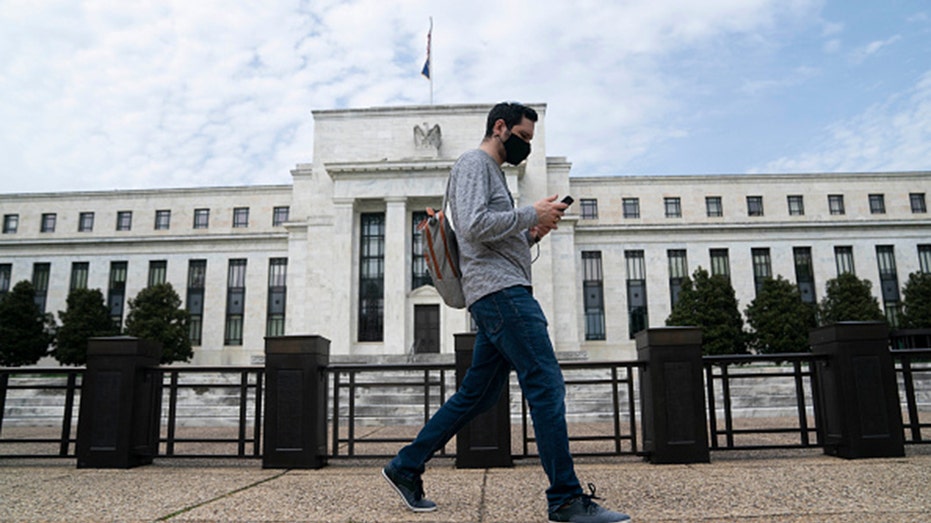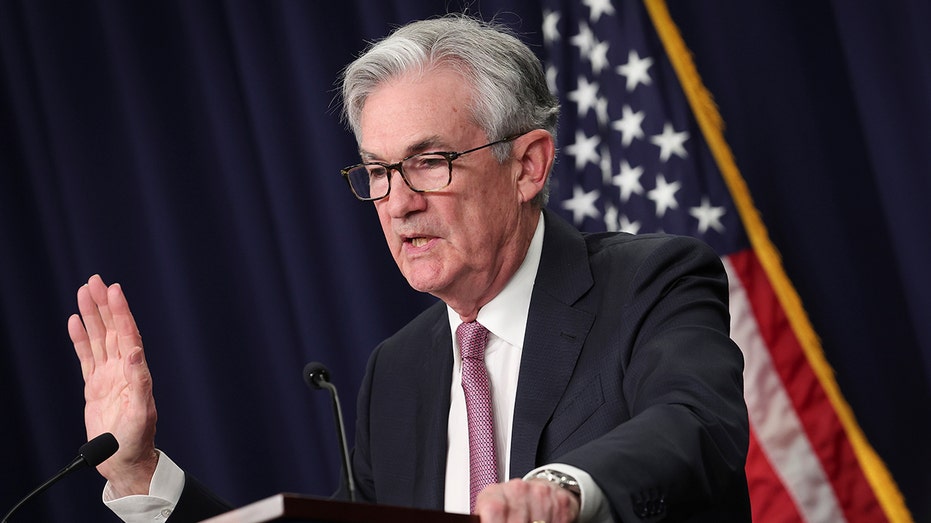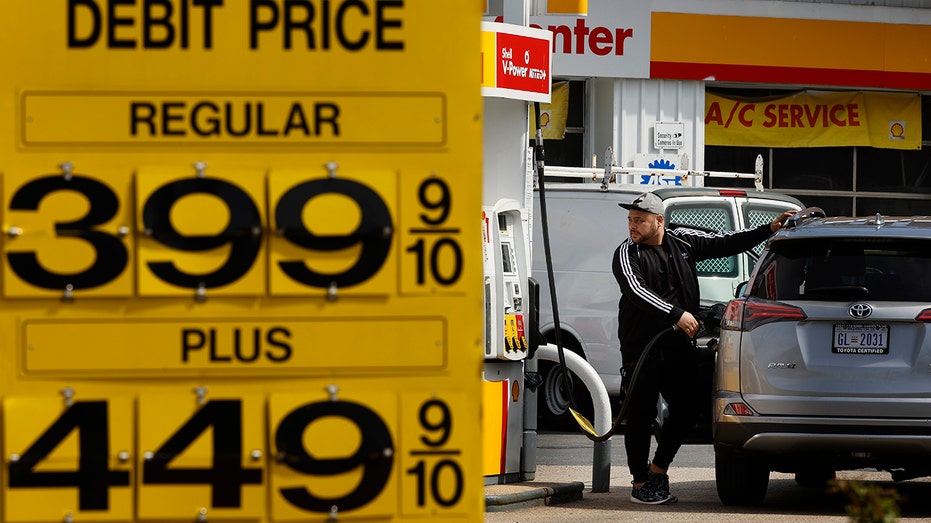Fed's Powell calms recession jitters with rebuff of 75-basis point rate hike
Stocks recorded their best day since 2020 after Powell's comments on coming rate hikes
Recession fears subside as Fed tries to restore credibility: Bob Doll
Crossmark Global Investments CIO joins 'The Claman Countdown' to discuss the state of the economy after the Fed's decision on interest rates.
Federal Reserve Chairman Jerome Powell alleviated some concerns of a looming economic recession after he rejected the possibility of an even larger interest rate hike than the one the U.S. central bank announced on Wednesday.
Bond yields fell and stocks recorded their best day since 2020 after Powell helped to calm investors, who worried that the Fed's aggressive tightening of monetary policy in order to tame the hottest inflation in 40 years could tip the economy into a recession.
HOW THE FEDERAL RESERVE MISSED THE MARK ON SURGING INFLATION
In remarks after the Federal Open Market Committee voted to raise its key interest rate by 50-basis points for the first time since 2000, Powell rebuffed any suggestion that a mega-sized, 75-basis point increase is on the table at future meetings. The S&P 500 rose 3% following his comments, the biggest jump since May 2020.
"A 75-basis point increase is not something that the committee is actively considering," Powell told reporters at the post-meeting press conference.

A man wearing a mask walks past the U.S. Federal Reserve building in Washington D.C., the United States, on April 29, 2020. ((Xinhua/Liu Jie via Getty Images) / Getty Images)
His comments came after policymakers voted unanimously to raise the key benchmark rate by a half point to a range between 0.75% and 1.0%, the highest since the pandemic began two years ago, as they look to curb consumer demand in order to reduce soaring prices.
The Fed also announced it will start reducing its massive $9 trillion balance sheet, which nearly doubled in size during the pandemic as the central bank bought mortgage-backed securities and other treasurys to keep borrowing cheap. In a plan outlined Wednesday, the Fed indicated that it will begin winding down the balance sheet June 1 at an initial combined monthly pace of $47.5 billion, a move that will further tighten credit for U.S. households. It will increase the run-off rate to $95 billion over three months.

Federal Reserve Chairman Jerome Powell speaks at a news conference following a Federal Open Market Committee meeting on May 04, 2022, in Washington, DC. ((Photo by Win McNamee/Getty Images) / Getty Images)
Collectively, the steps mark the most aggressive tightening of monetary policy in decades as the Fed races to catch up with inflation, which hit a fresh 40-year high in March.
"Inflation is much too high," Powell told reporters at a post-meeting news conference. "We understand the hardship it is causing, and we’re moving expeditiously to bring it back down. We have both the tools we need and the resolve that it will take to restore price stability on behalf of American families and businesses."
Although the moves were widely expected, investors were worried that Powell may telegraph to markets even steeper rate increases at coming meetings as it races to catch up with inflation. Bank of America, Deutsche Bank and Fannie Mae were among the Wall Street firms that predicted a recession in the next two years before the meeting began this week.
Powell acknowledged there could be some "pain associated" with reducing inflation and curbing demand, but pushed back against the notion of an impending recession, identifying the labor market and strong consumer spending as bright spots in the economy.

Gasoline prices hover around $4.00 a gallon for the least expensive grade at several gas stations in the nation's capital on April 11, 2022, in Washington, DC. ((Photo by Chip Somodevilla/Getty Images) / Getty Images)
"It’s a strong economy," he said. "Nothing about it suggests it’s close to or vulnerable to a recession."
GET FOX BUSINESS ON THE GO BY CLICKING HERE
Still, there are no guarantees and economists have said that the Fed faces a difficult road ahead as it tries to delicately thread the needle between cooling demand and crushing economic growth.
"[Powell] struck an optimistic tone about the plan to raise interest rates, bring down the level of job openings and keep unemployment relatively low," said Chris Zaccarelli, chief investment officer of Independent Advisor Alliance. "However, it will be very challenging to do, and we are less sanguine about the Fed’s ability to achieve this 'soft landing,' while acknowledging that they have to try."





















